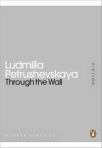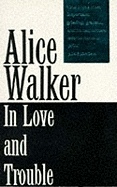The Song of Achilles is the first book that I have read in recent months that has really transported me to another world. I was so
wrapped up in the story, that I was thinking about it frequently in between picking up my Kindle.
That might simply make you question my reading choices, however recently I have read books that were well written, or interesting, but they haven’t inspired as much pleasure in reading as Madeline Miller’s book did. It takes a particular quality of writing to really whisk me away. I can count probably on my fingers those that have. Examples, off the top of my head would be Captain Corelli’s Mandolin, Middlesex, The Night Circus and of course Daphne DuMaurier’s Rebecca or Jamaica Inn.
I loved reading Greek myths as a child and studied classics at school so it would be fair to say that I’m pre-disposed to enjoy this kind of novel. I do believe though, that it is accessible to anyone and might even inspire an interest in mythology in readers who haven’t read stories of this kind. Essentially it is simply a story of love and of war…but mainly of love.
The quality of Madeline Miller’s storytelling is the thing that really stands out for me. She often embellishes and intrigues the reader with fleeting references to other greek heroes, gods and goddesses, but never lets detail get in the way of the flow of the tale. Her descriptions are often lush and sensual, such as Patroclus, watches Achilles eating ripe figs:
“…the dark flesh parting to pink seeds under his teeth. The fruit was perfectly ripe, the juice brimming”.
I cared about her characters – tenacious Briseis, kind Patroclus with his constant but gentle love for Achilles – and enjoyed the sparring between the proud warriors.
I don’t know accurate it is from a scholarly perspective and I know
Miller takes some liberty with the stories (which she freely admits),
but she has obviously taken care to really research before elaborating
on the original tales. Just like in The Red Tent, the author has taken a
fleeting piece of the original and then expanded it, adding her own
creative flourish – you could say, in Homeric style.
A wonderful novel, and an absolute pleasure to read.
Chasing Bawa and Savidge Reads and Farmlanebooks also loved this novel if you want to find out what they thought!









































